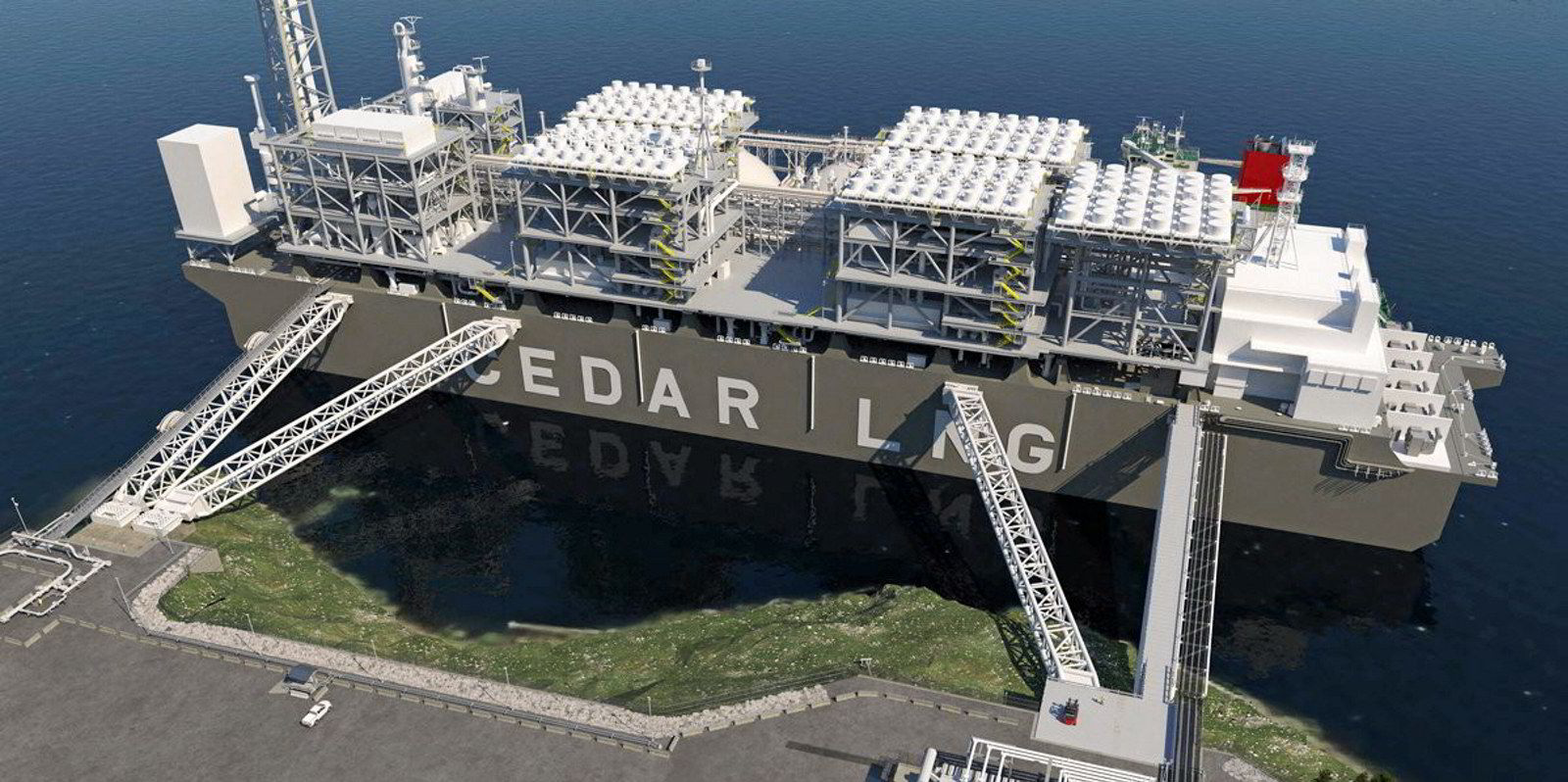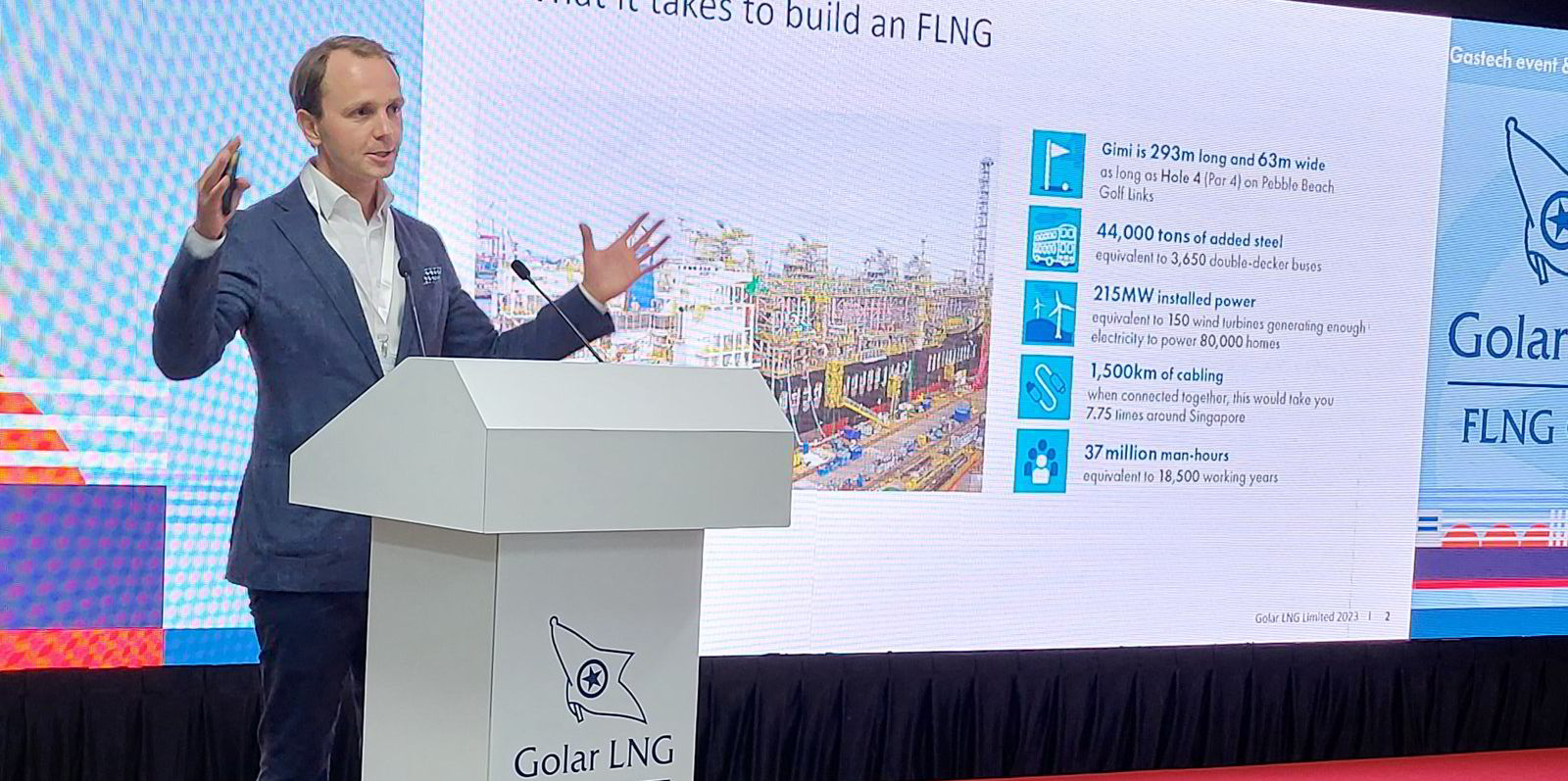Incoming Canadian production development company Cedar LNG is being linked to a $1.5bn floating LNG newbuilding at South Korean shipbuilder Samsung Heavy Industries.
The yard said on Tuesday that it had formed a consortium with US engineering company Black & Veatch to undertake an engineering, procurement & construction (EPC) contract to build the unit.
SHI did not give details of the capacity of the LNG floater or the contracting party.
However, it said the FLNG unit would be delivered in February 2028 and located in North America.
Newbuilding market watchers are naming Cedar LNG as the company behind the order, which is understood to be for a 3.3 million tonne per annum unit.
In November, Cedar announced it had reserved berth space for the floater after signing a heads of agreement with SHI and Black & Veatch, saying it wanted to secure the yard capacity to meet its planned commercial operations target date.
At the time, Cedar said it was aiming to take a final investment decision on its project at the end of 2023 or early in the New Year and sign an EPC contract.
Cedar LNG, a partnership of the Haisla Nation and Pembina Pipeline, which is headed up by chief executive Doug Arnell, wants to site an FLNG unit on a site at Kitimat in British Columbia, within the traditional territory of the Haisla Nation.
The unit has been designed to offer up to 250,000 cbm of LNG storage.
The floater will use renewable power from BC Hydro’s grid to reduce its carbon footprint.
There are several companies chasing FLNG berths at present and only a few yards with the large dock space and experience to build the units. Shipyards are also sitting on bulging orderbooks, complicating competition over berths.
SHI focuses on building FLNG units, most recently delivering the 3.4-mtpa Coral-Sul FLNG, which is operated by BP off Mozambique.
Like most major yards, the shipbuilder has amassed a strong orderbook and currently boasts a three-year backlog of contracts worth almost $32bn in total.
But for 2023, SHI fell short of its $9.5bn annual order target, netting 87% of the total at $8.3bn.






